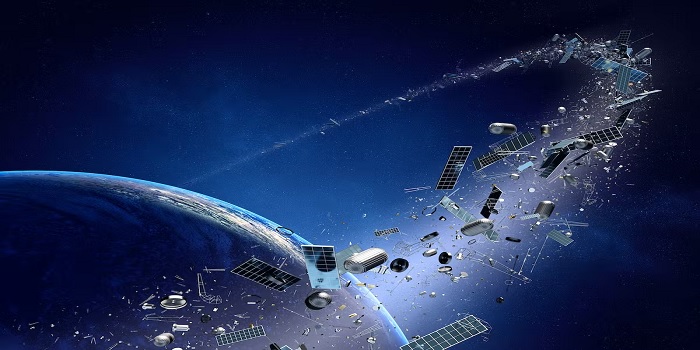NewsGate Press Network
Increasing menace of space debris (or space junk) is now a major headache for strategic and defence agencies specially the Indian Space Research Organisation i.e. ISRO.
On Wednesday the 4th of December 2024, in a detail written reply to the a question tabled on the floor of Lok Sabha the government explained steps that are being taken to address one of the most peculiar problem ISRO is facing.
Recognising the growing importance of Space Situational Awareness (SSA) for space sustainability, ISRO System for Safe and sustainable Space Operations Management (IS4OM) has been established to focus all efforts related to spaceflight safety and debris mitigation and for dealing with the emerging challenges in operating in a congested space environment.
To tackle this a ‘Network for Space object TRacking and Analysis’ popularly known by its acronym “NETRA” has been approved by GOI for SSA capacity building.
ISRO adheres to the internationally accepted space debris mitigation guidelines recommended by UN -COPOUS and Inter-Agency Space Debris Coordination Committee (IADC) to the maximum possible extent.
For all Indian launch vehicles, Collision Avoidance Analysis (COLA) is performed to select collision threat-free lift-off time within the launch window. Continual assessments of any close approach risk to ISRO’s operational satellites are carried out and Collision Avoidance Manoeuvres (CAM) are performed as and when needed.
In case the object posing close approach risk is another active satellite, the required coordination is carried out with the owner/operator so that only one of the satellites performs the CAM.
Continual efforts to improve the operational methodologies for close approach assessment are pursued to adapt to the challenges posed by the surging space traffic, apart from modelling on-orbit break-up events and prediction of atmospheric re-entries of space objects etc.
ISRO contributes substantially to shaping the pertinent guidelines and recommendations for sustainable use of space as an active member of various international agencies dealing with safety and sustainability of outer space activities, such as IADC, IAA (International Academy of Astronautics, ISO (International Organization for Standardization), IAF (International Astronautical Federation), UN Long Term Sustainability Working Group.
The Indian Space Policy places significant importance in space debris mitigation requirements and SSA capacity building.
The recently unveiled Debris Free Space Mission (DFSM) initiative is also spearheaded by ISRO with an aim to achieve debris-free space missions by all Indian space actors, both governmental and non-governmental, by 2030.
The initiative aligns with global efforts for space sustainability, positioning India as a nation prioritizing safety, security, and sustainability in outer space activities.
This information was given by Union Minister of State (Independent Charge) for Science and Technology, Minister of State (Independent Charge) for Earth Sciences, MoS PMO, Department of Atomic Energy, Department of Space, Personnel, Public Grievances and Pensions, Dr. Jitendra Singh in a written reply in the Lok Sabha on Wednesday.


Comments are closed for this post.